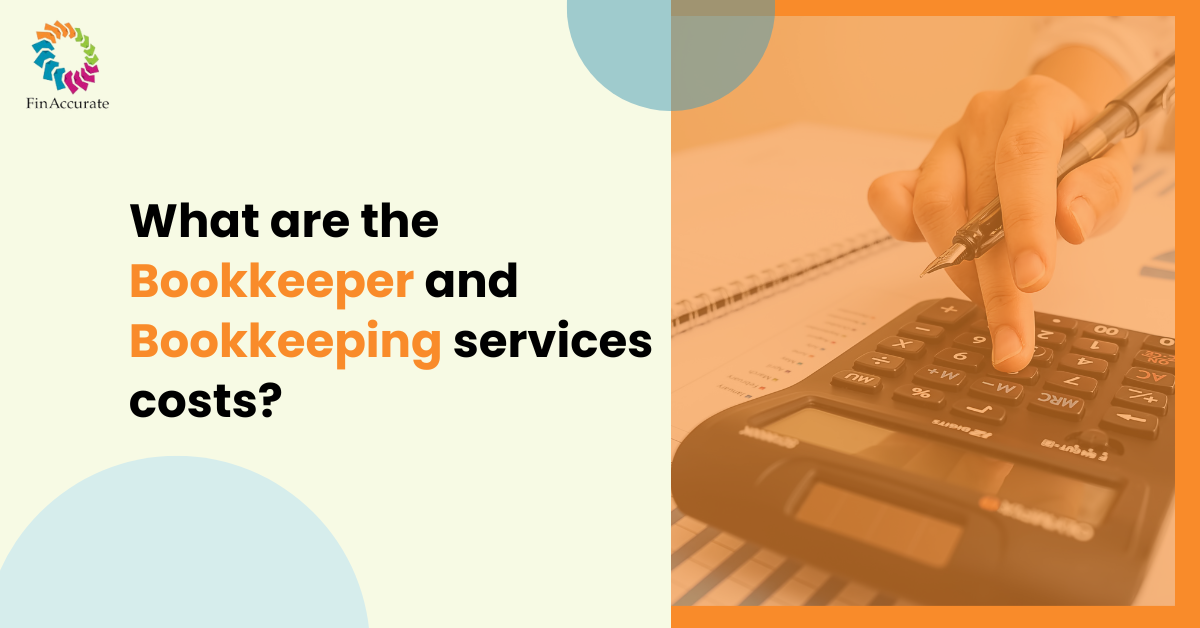Hiring a bookkeeper or bookkeeping services costs can be an invaluable asset for any business. Bookkeepers can help you to better manage your finances and keep track of your finances. However, it is important to know the cost of hiring a bookkeeper before making any decisions. This article will explore the cost of a bookkeeper, including what factors can affect the cost.
Definition of a Bookkeeper
Bookkeeping is recording and tracking all financial transactions made by your business. This can be done through software or by keeping physical books that record all income and expenses. This information allows you to generate accurate financial statements, such as income and expense statements, that show whether you are making a profit.
Should You Hire a Bookkeeper or do it Yourself?
When running a small business, it can be difficult to decide whether to handle your bookkeeping yourself or hire an outside professional. Although there is no one-size-fits-all answer, there are factors to consider to help you make the best decision for your business.
When deciding to take on your bookkeeping or to outsource it, think about the time and resources you have available. Do you have the necessary skills and knowledge to manage your books? Do you have enough time in your schedule to dedicate to the task? Can you afford to hire a professional?
Consider the benefits of hiring a bookkeeper. An experienced professional can provide accurate and timely financial records, saving you time and money and giving you peace of mind knowing your books are in good hands.
Weigh the pros and cons of both options, and make a decision that works best for you and your business.
Doing It Yourself
Although outsourcing your bookkeeping might seem the simplest option, it may not be the best choice for your business. Accounting and bookkeeping services can be costly, and depending on the size and complexity of your business, they may not be worth the expenses.
For small business owners just starting, their situation may be straightforward enough for them to do their bookkeeping. Additionally, the number of transactions each month may be so minimal that keeping the books does not require much time.
Managing your books can save you money but also give you something more. Keeping your books is a great way to learn new accounting and money management skills that can help you make informed decisions about your business’s growth opportunities. Additionally, keeping your books allows you to better understand your finances at any given time—not just your online bank balance.
There are things that business owners can use to learn how to do their bookkeeping. A good place to start would be with blogs from entrepreneurs or companies you know and trust, as well as a group of other business owners with whom you can share tips and advice.
Along with the helpful resources, there are also many powerful bookkeeping programs for small businesses, some of which are free to use. If you have a small business, accounting software can make keeping your books much faster and easier than if you did it by hand with spreadsheets. You can also find a mentor to help you learn how to use the software you choose to keep your books.
On the other hand, if you don’t like bookkeeping, it may cost you more to do it yourself than hire someone else. For example, if you can’t get your head around accounting concepts, it may cause stress and waste a lot of time as you try to prepare your books. Since time is money, hiring someone else to do your books might be best.
What is a Fully Charged Bookkeeper?
Full-charge bookkeeping is a combination of traditional bookkeeping and accounting. It requires the bookkeeper to handle day-to-day bookkeeping tasks and full-cycle accounting duties. The responsibilities associated with this role include data entry, accounts payable, accounts receivable, cash flow management, budgeting, payroll, financial reports, tax preparation, and more.
With these responsibilities, a full-charge bookkeeper is responsible for all aspects of the financial operations of a business.
- Keeping track of transactions
- Taking care of accounts payable
- Charging the business’s customers
- Preparing bank deposits
- Helping make financial statements (like income statements)
- Helping make financial statements (like an income statement)
- Taking care of the business’s payroll
- Overseeing other administrative workers (if in-house)
- Coordinating with Certified Public Accountants
Generally, small- and medium-sized companies that do not have a controller employ full-charge bookkeepers. This role can be fulfilled in-house full-time (e.g., 40+ hours a week) or by taking on external clients.
What will a Bookkeeper do for Me?
A bookkeeper is a professional responsible for maintaining and recording the financial transactions of a business. Bookkeepers are responsible for keeping track of a business’s financial data and ensuring it’s up-to-date and accurate. They keep a close eye on the financial status of a company and provide reports to business owners and managers to assist them in making decisions. In some cases, bookkeepers may also be involved in developing strategies. Additionally, they often work with accountants to organize yearly financial documents and tax filings.
Bookkeepers are typically responsible for generating four main financial statements.
- An income statement (also known as a profit & loss statement) outlines revenue and expenses over a certain period,
- A balance sheet provides a snapshot of a company’s financial position at one point in time.
- A cash flow statement that tracks the cash and cash equivalents entering and leaving a company
- Statement of changes in equity (also known as a statement of retained earnings), which shows any changes in the share of capital, reserves, and retained earnings during a reporting period.
Most of the time, they can also help with some of the tax prep so that your accountant has less to do (which is a good thing because bookkeepers are less expensive than CPAs). But they can’t help you plan your taxes or deal with your tax return.
Here are some more important bookkeeping tasks that will help your business run smoothly:
- Take care of accounts payable and accounts receivable (make sure you get paid on time and pay your bills on time)
- Put down payments and credits
- Collect sales tax and send it to the government.
- Keep track of your debts and pay them off as they come due.
- Write down how much money comes in and put it in the bank.
- Bank reconciliations need to be done every month.
- At tax time, give your CPA the correct financial statements.
- Maintain your annual budget
- Report on problems and changes as they come up.
- Pay the bills
Bookkeepers are a great asset to any business as they can take care of many of the financial tasks, such as invoicing, bookkeeping, and payroll. They can also usually do some of the tax preparation work, saving your accountant time and money. However, they are not able to assist with tax planning or filing your tax return
Costs of Hiring a Bookkeeper
The cost of hiring a bookkeeper can depend on the size of the business and the bookkeeper’s level of experience. Bookkeepers often charge either an hourly rate or a monthly fixed fee.
The cost of bookkeeping services can vary greatly, depending on the size of the business and the number of invoices they process. The average monthly cost of a bookkeeper is between $500 and $2,500. But there is no set price for hiring a professional to handle the finances of your business. It depends on what kind of financial expert you hire and how your business is set up. Some things that affect how much it costs to hire a bookkeeper are:
- How big and hard your business is to run
- The number of transactions each month
- What kind of bookkeeping do you need, and how many hours
- Location, knowledge, and experience of a bookkeeper
How payment is set up also affects how much a bookkeeper costs. Most of the time, you can pay for bookkeeping services in one of three ways: by the hour, by the month, or with a flat fee. How you pay your bookkeeper depends on whether they are an employee (full-time or part-time), a freelancer, or an online bookkeeping service.
Conclusion
In conclusion, hiring a bookkeeper can be a valuable asset for businesses of all sizes. Bookkeepers can save businesses time, money, and stress by taking care of their financial needs accurately and efficiently. Not only this, but the benefits of hiring a bookkeeper extend beyond saving time and money, with bookkeepers providing businesses with valuable insights and advice that can help them to grow and prosper. Ultimately, the cost of hiring a bookkeeper is well worth the investment, as the benefits of having professional manage finance far outweigh the cost.
JAY’s Choice:-
- Bookkeepers for small business
- 3 Ways to grow your bookkeeping business
- What are the challenges of the Budget session and solutions to improve it?
- How to identify and avoid problems in Bookkeeping
- 10 Types of Cloud-Based Accounting Services
- 10 Benefits of Outsourced Bookkeeping
- How to hire a top bookkeeper: a comprehensive guide
- 5-Ways Hiring A Bookkeeper Can Make Your Business More Profitable
- Bookkeeping For Non-profits
- Accounting Year-End Checklist for Your Small Business






:max_bytes(150000):strip_icc()/female-accountant-keying-in-numbers-485846959-59a5f94d396e5a00113c25ef.jpg)




